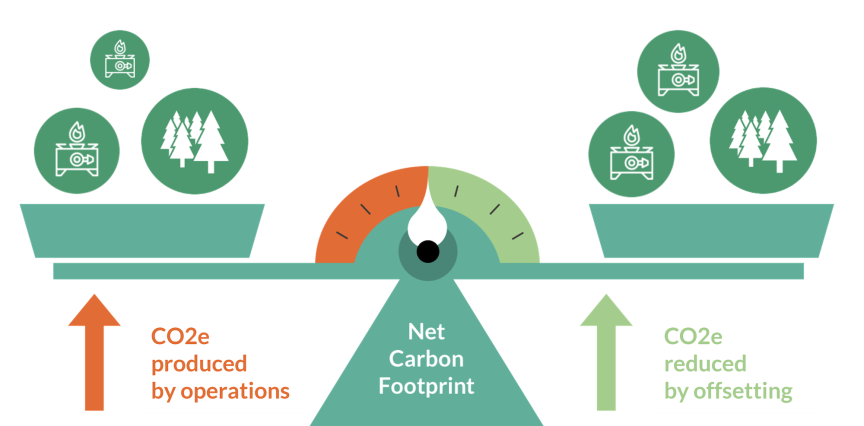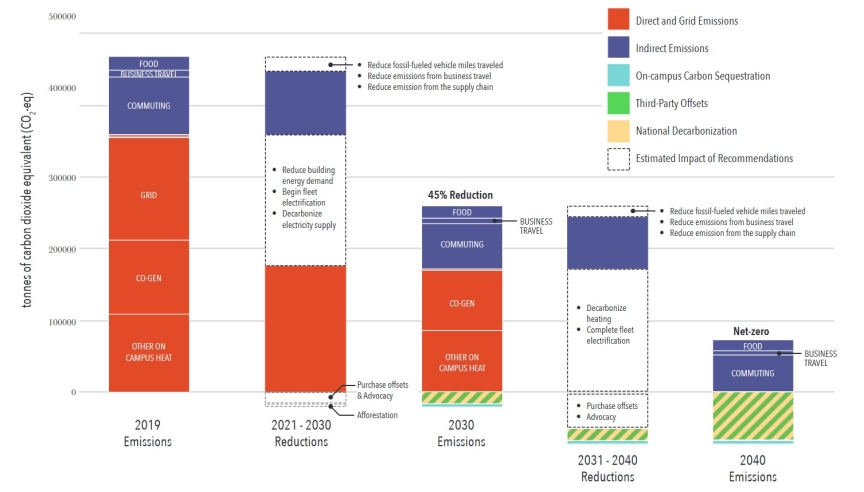By: Stella Campbell
A recent poll from the Morning Consult found that most adults in the U.S. don’t know what the term “carbon neutral” means, and only 45% of self-identified environmentalists were able to correctly identify the exact meaning of the phrase. With Rutgers committed to achieving carbon neutrality by 2040 and becoming carbon-negative (removing more carbon dioxide than we are putting into the atmosphere) no later than the University’s 275th anniversary in 2041, it is worth starting off the year with a quick explanation of this terminology.
Carbon neutrality, also referred to as “net-zero emissions”, is often confused with the term “zero emissions”. Achieving zero emissions would entail preventing all emissions from being released in the first place. While achieving zero emissions would be ideal, given the difficulty of eliminating emissions entirely with our current technology and lifestyles, many plans aim for carbon neutrality. When an institution achieves carbon neutrality, the carbon dioxide emitted from its operations and production is balanced with carbon dioxide that has been sequestered or removed from the atmosphere. Physically, stabilizing the climate requires achieving net-zero emissions across the entire economy.
Oftentimes emissions are accounted as counterbalanced through the use of carbon offsets, which are investments in environmental projects designed to remove and sequester carbon from the atmosphere. These may be projects implemented directly by the institution, or in many cases, purchased from a third-party vendor. However third-party offsets can be difficult to verify and measure accurately.

What does this mean for Rutgers and our climate goals? While the Rutgers Climate Action Plan calls for net-zero emissions, it explicitly states that third-party carbon offsets should be used only as a method of last resort. Rutgers will prioritize reducing emissions at their sources. For emissions that cannot yet be eliminated, Rutgers will manage local carbon sequestration projects. Finally, if additional offsets are needed to achieve net-zero emissions in advance of state- and nationwide carbon neutrality, Rutgers will work with a third-party provider. An advisory board will oversee selection of offset providers and ensure they meet high quality standards, allow Rutgers researchers and students to verify project calculations and measurements, and maximize side benefits to residents of New Jersey and our host communities. The Climate Action Plan also calls for Rutgers to pair its use of offsets with advocacy for both public and private actions that reduce Scope 3 emissions.












